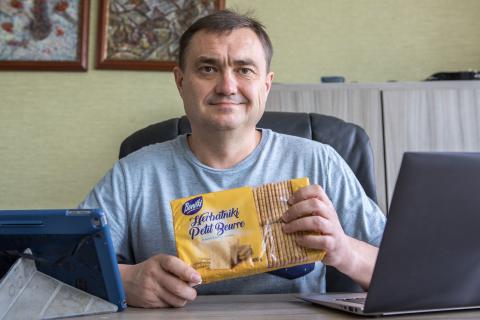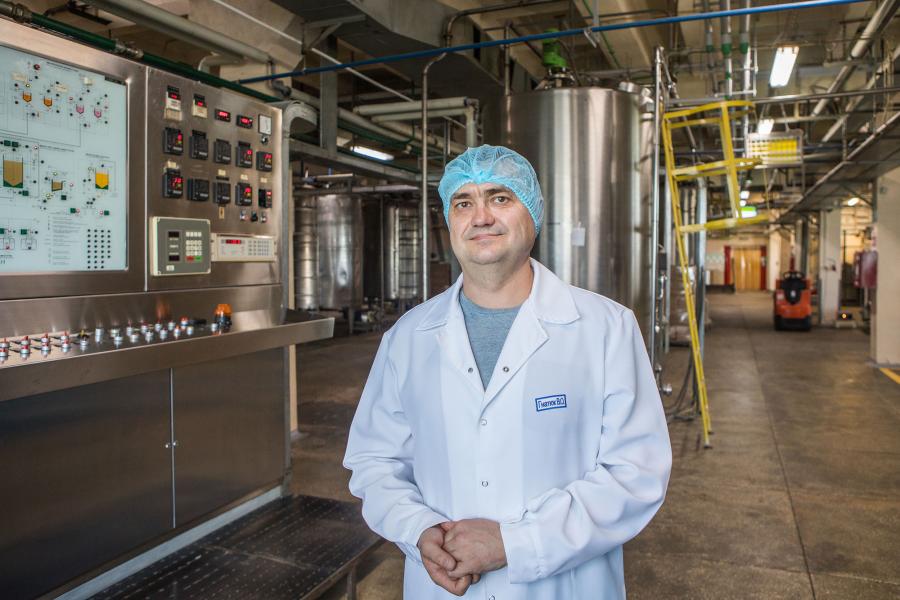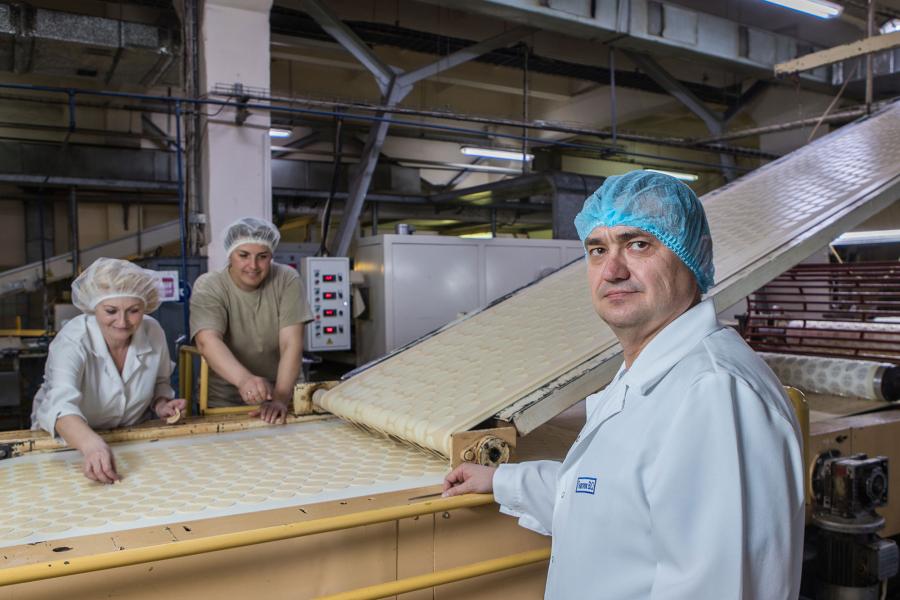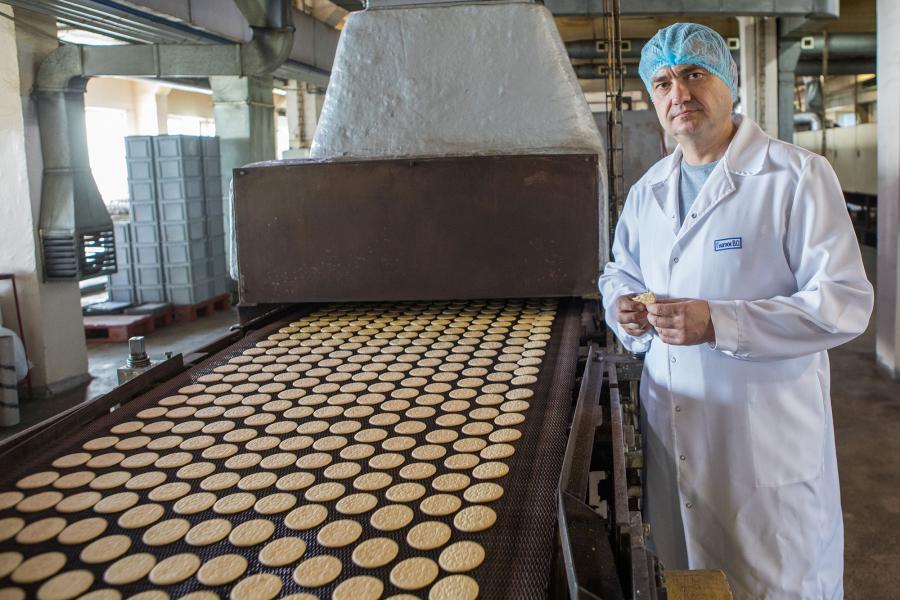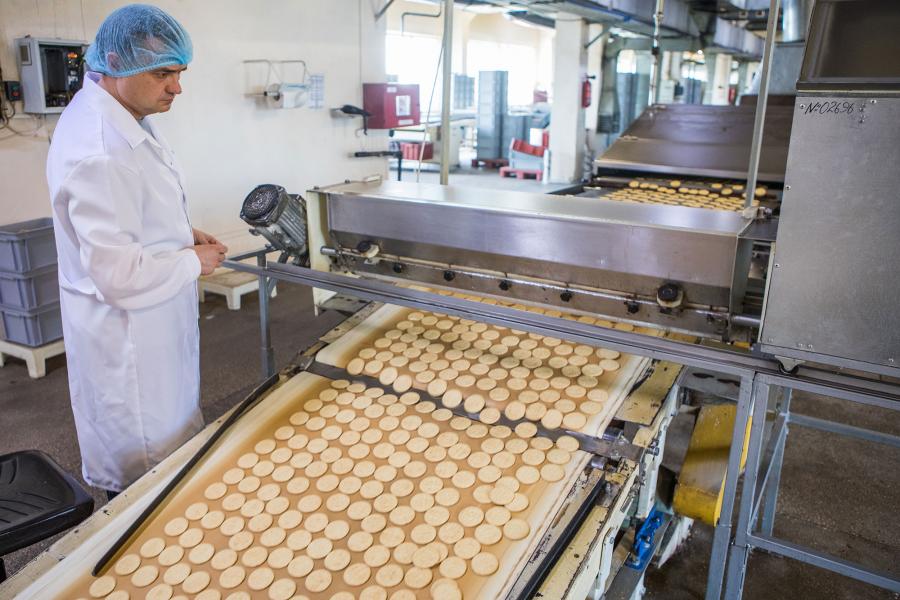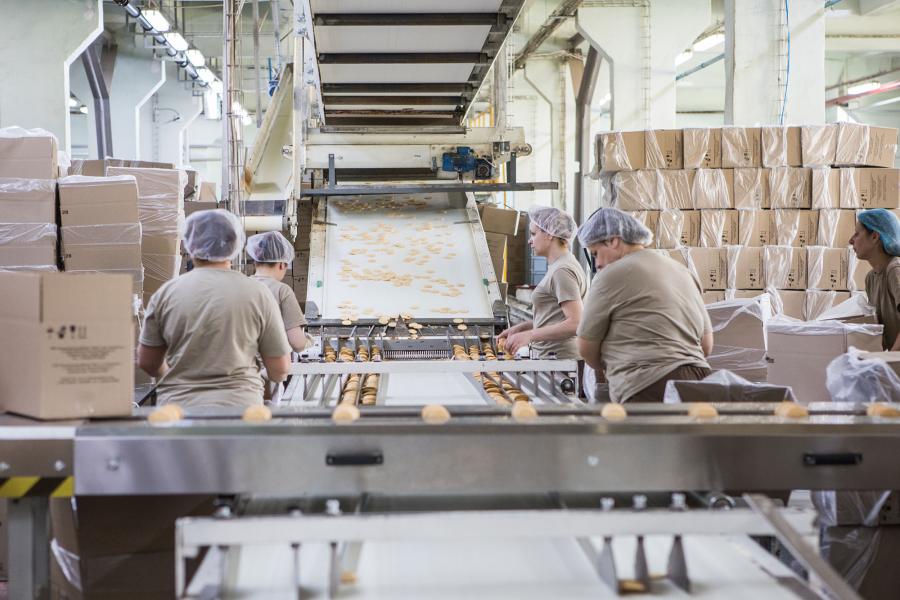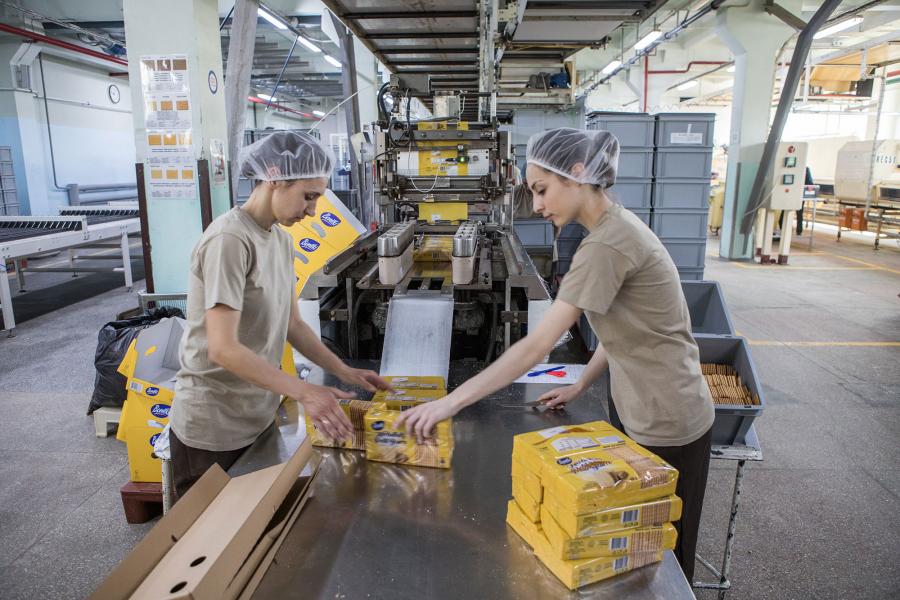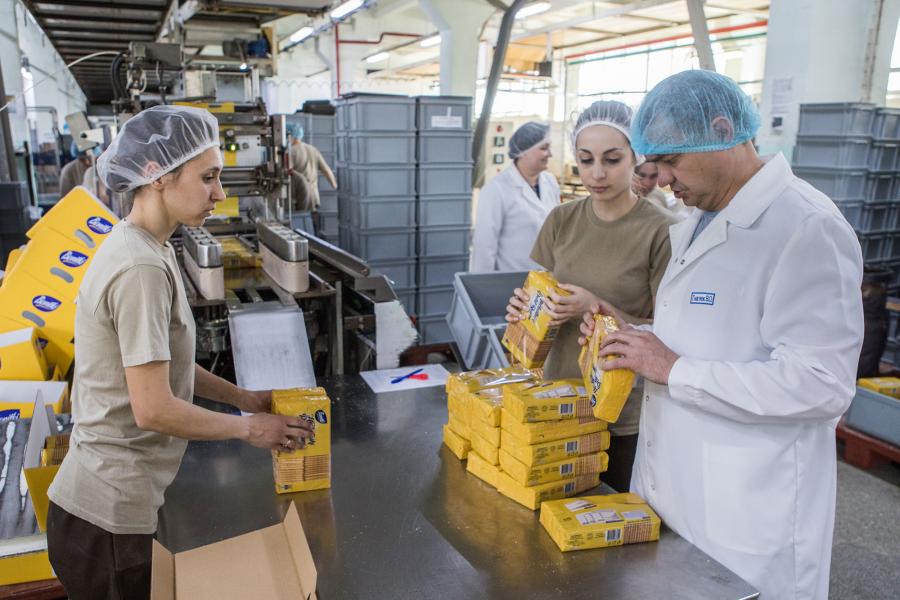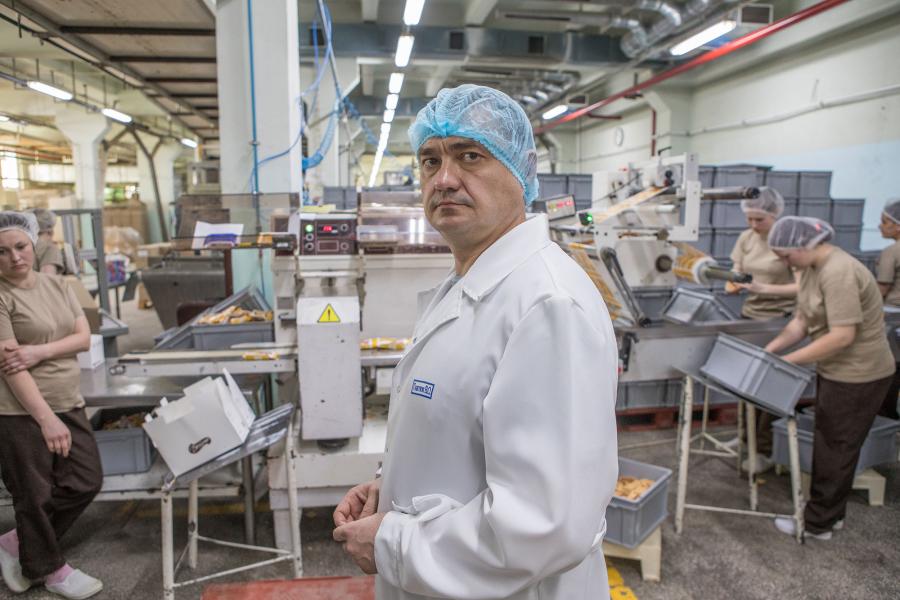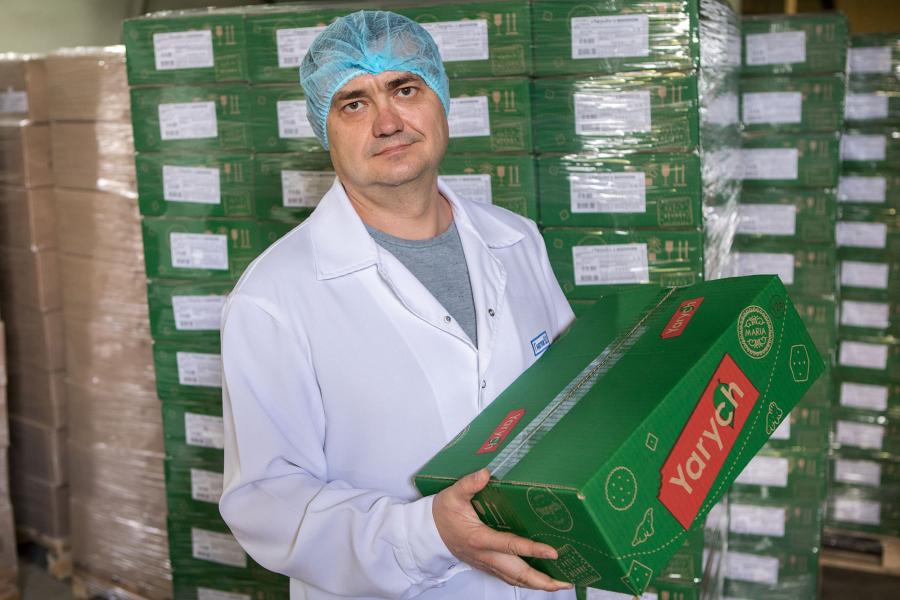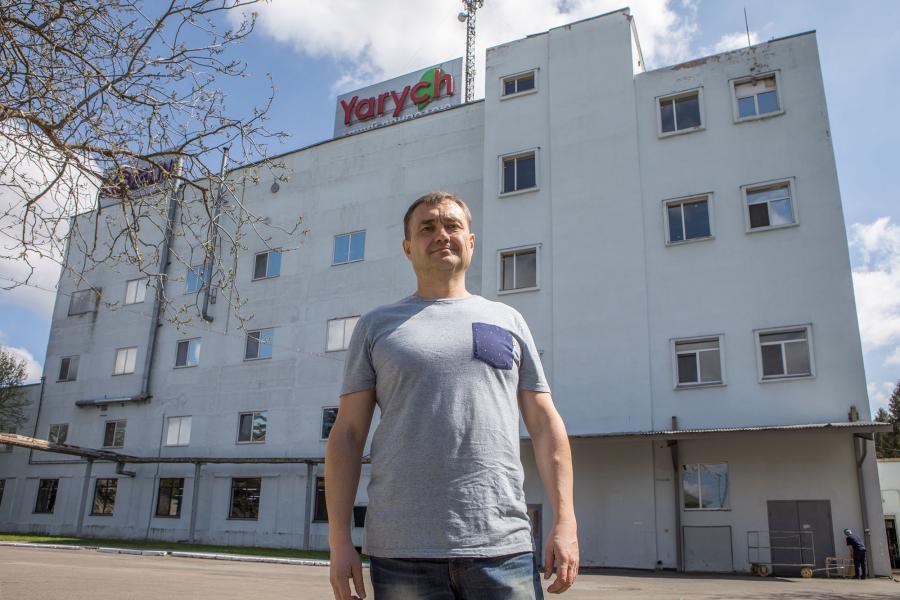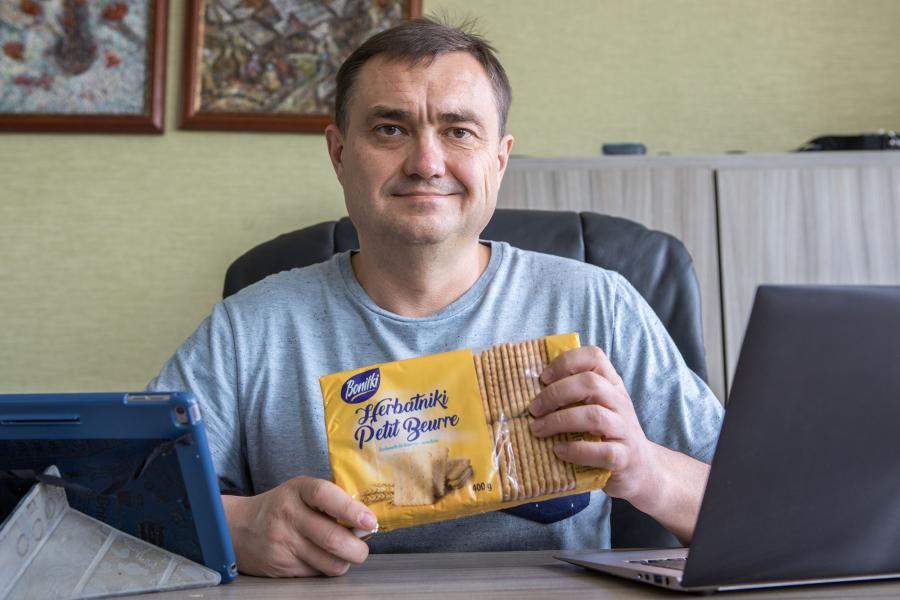How Ukrainian company Yarych has become a leader in the domestic biscuits market, supported by expert advice
Yarych Confectionery, located in the village of Staryiy Yarychiv near Lviv, can easily be detected by its strong, unusual odour. It smells of garlic and vanilla… at the same time. "This comes from the savoury crackers and the Maria biscuits" – the origin of the strange aroma is explained by a smiling Nadiya Shankovska, the head of the factory’s laboratory. The garlic crackers were baked overnight, and now it is the turn of the dry Maria biscuits.
The company’s national recognition relies on these two products. In 2016, Yarych’s products accounted for more than 70% of the Ukrainian market for Maria-type biscuits. The share in the cracker market is smaller, but in the general market for simple biscuits (there are also sugar biscuits), the small Lviv company holds 25%. And this despite the fact that the Ukrainian confectionery industry is divided among five major market players from the world’s top league.
In 2014, Yarych began to feature frequently in the local and national media: the company had pulled off the impossible – it had put its biscuits on the shelves of EU supermarkets. A small enterprise from Lviv was cited as an example of how Ukrainian businesses could be successful on the European market, with their companies’ products also competing confidently in terms of quality.
One of the ingredients behind the success of the Lviv confectioners was the company's participation in the EBRD's Advice for Small Businesses programme. Under this programme, small companies receive consultations from leading local and international business experts for 25%-50% of the cost of their services. The rest is covered by a grant from donors, including the EU, Sweden and the United States.
The invited specialists helped Yarych to solve several key business problems effectively – streamlining sales, re-branding the biscuits, restructuring the financial accounting, and developing new products. "These consultations saved us a lot of money," says Volodymyr Hnatyuk, the owner of the company. "The mentors helped us avoid the mistakes that they and their companies had once made themselves, and we had an opportunity to tap into their experience."
'Maria' for Maria
The production lines at the Yarych factory operate from the top down. On the fifth floor, huge machines knead the dough, which is then fed along special conveyors where it is rolled and folded several times. This is necessary in order for the biscuit to have a beautiful layered structure, explains Nadiya Shankovska. Then the future delicacy goes into the stamping machine, comes out as shaped raw biscuits and enters the 85-metre oven, emerging as the finished product.
As we go up to the top floor I notice a date pressed into the concrete of the steps: 1978. This is the year the factory was founded, says Shankovska. Back then, the enterprise was a part of the Svitoch conglomerate, which was well-known throughout the USSR for producing some of the best sweets. In the late 1990s, after Ukraine became independent, the plant in Staryiy Yarychiv was bought by Nestle, the international confectionery giant. The company invested heavily in the production facilities in Ukraine, and in particular installed new modern lines. However, in 2007, Nestle decided to sell the factory, which was bought by two Ukrainian entrepreneurs – Volodymyr Hnatyuk and Oleh Klymchuk.
The companions decided not to change the specialisation of the factory, which had long produced Maria dry biscuits and various kinds of crackers. They only added a new product to the range – the Petit Beurre type of biscuit – which is familiar to Europeans, but not well known in Ukraine.
The addition of Petit Beurre to the product offer of Yarych came for a valid reason: in 2012 the company was considering entering the EU market. It is situated only 60 kilometres away from the EU’s border after all. Representatives of the Ukrainian company knocked on endless doors of purchasing departments of the European supermarkets, and it was only in 2014 that they got lucky. They offered their Maria cookies to a purchaser of the Polish Carrefour. By a lucky chance, the manager was also called Maria. She liked the biscuits.
Now Yarych is on offer not only in Carrefour, but also in the Biedronka and Auchan chains. Exports to the EU and elsewhere account for about 20% of the company’s output. This is about 300 tonnes of biscuits a month, says Hnatyuk. The plan is to increase this volume to 500 tonnes per month.
A taste for transformations
In 2015, Maria biscuits received a facelift. The packaging became more colourful, information about healthy eating was added, and more modern fonts were used. The products from Staryiy Yarychiv began to stand out from the rest of the Maria-type biscuits produced by competitors. Moreover, the competition did not just produce, but was actually copying the appearance of the popular Yarych biscuit.
A marketing consultant from Italy, Giorgio Bellachioma, took up a project with Yarych as part of the Advice for Small Businesses programme and advised the company’s owners to change the appearance of the products.
"We wanted to raise money for our company," says Volodymyr Hnatyuk, the owner, "but the consultant suggested starting off by teaching us how to do things properly."
Giorgio Bellachioma helped the Ukrainian company not only with biscuits, but also with other products, for example the company’s Rozalini cakes. At the suggestion of the experienced marketer, Yarych decorated the packaging of these treats with wide purple ribbons. Hnatyuk says that at first everybody was against this colouring, because purple is not an "edible" colour, but in the end he had to admit that the Italian marketer was right. Now Rozalini stands out well among the cakes of competitors.
In addition to the design, Bellachioma also co-operated with Yarych on matters of strategy: in particular, he helped to develop a clear positioning, implemented an annual marketing plan, and also worked on the company’s mission. "The consultant gave us a corporate culture and an understanding of what we are working on," says Hnatyuk.
An appetite comes with eating. And that fits perfectly with Yarych’s appetite for change. After working with the marketing expert, they came back to the EBRD for a consulting project aimed at improving their sales function . The EBRD helped to find a sales consultant, who helped form a team of efficient sellers. After that, an expert in financial accounting was involved in the project, and now there is an engineering technologist from Israel working with the company. This is an exciting new stage in the development of Yarych.
The company is preparing to roll out three completely new types of biscuits, with milk, caramel and chocolate. Some fresh new flavours are coming to the market of Ukraine.
Author: Katerina Shapoval
The article was prepared for the EU4Business initiative.

